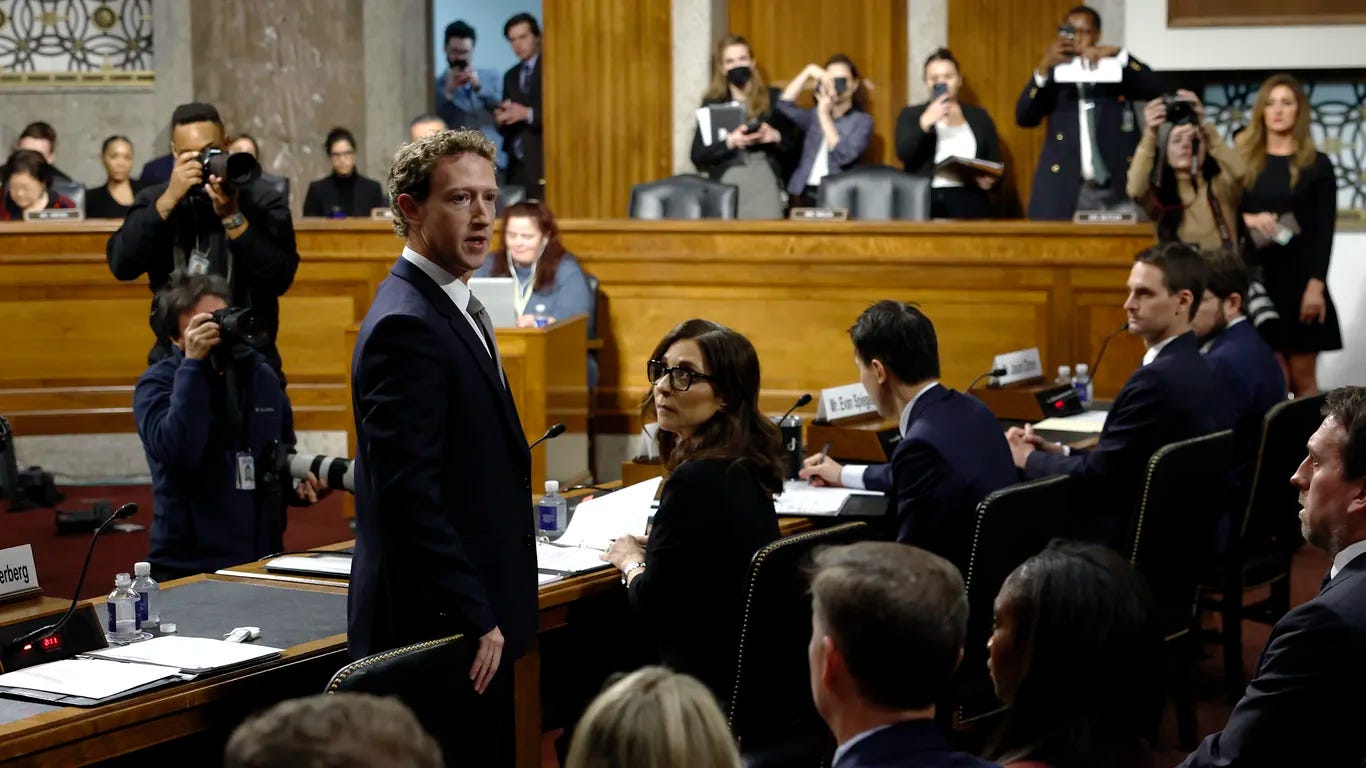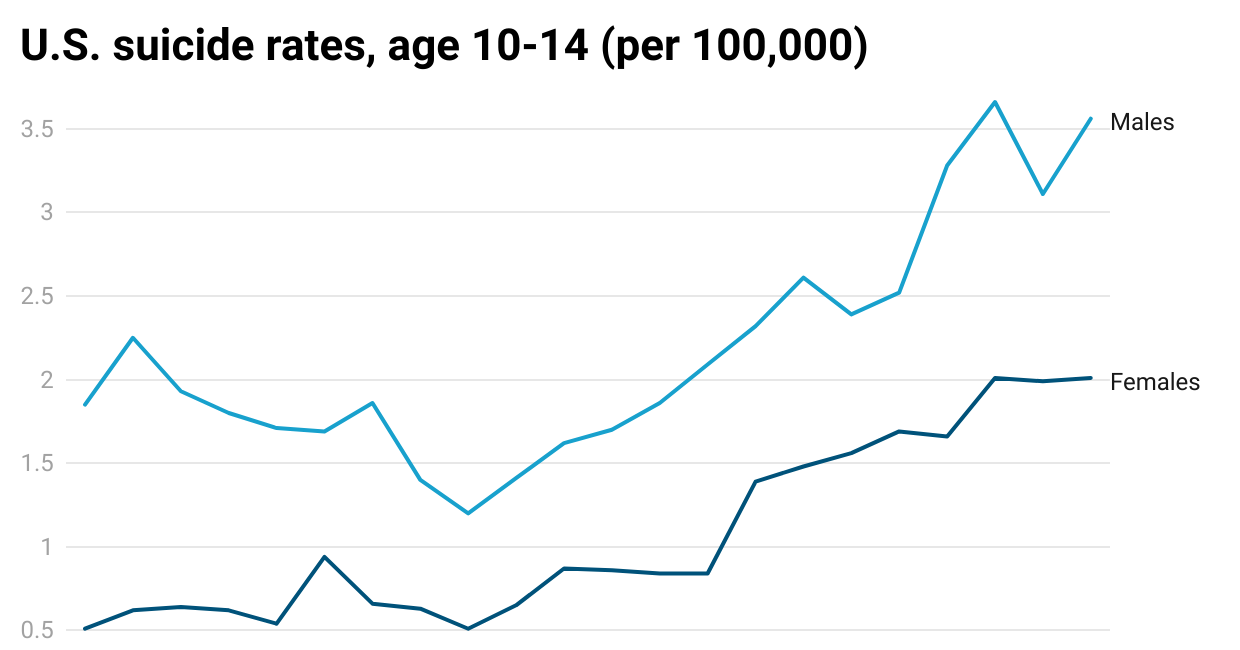Social media and kids' mental health- An update
The public health datastory behind the congressional hearing yesterday.
Public health touches all aspects of our lives, not just during a pandemic and not just with infectious diseases. Thanks to your feedback, this newsletter will continue with Covid-19 updates and address other public health topics, like mental health. To choose what topics land in your inbox, click HERE.
Strong bipartisan statements came out of a congressional hearing yesterday about the harms of social media use among children and teens. Parents of kids harmed by social media showed up in immense force.
“You have blood on your hands.”— Sen. Lindsey Graham to five social media CEOs.
“I’m sorry for everything you have all been through.”— Mark Zuckerberg to parents in the audience.

Is social media dangerous for children and teens? And, if so, what are our options?
Here is the nuanced public health data that (hopefully) congressmen/women are using to (hopefully) make meaningful and needed change. But, as we know by now, policy isn’t always based on science.
Note: The below was published 8 months ago, and some things have changed since. We bolded the changes to bring you along for the ride. As a parent, I still root for Option #4.
Love, YLE
“Your Local Epidemiologist (YLE)” is written by Dr. Katelyn Jetelina, M.P.H. Ph.D.—an epidemiologist, wife, and mom of two little girls. During the day, she is a senior scientific consultant to several organizations, including CDC. At night, she writes this newsletter. Her main goal is to “translate” the ever-evolving public health world so that people will be well-equipped to make evidence-based decisions. This newsletter is free, thanks to the generous support of fellow YLE community members. To support this effort, subscribe below:






I'm convinced that social media is a net negative for kids. I have a 12 year old daughter, and she is the last in her class to have a cell phone (although she gets plenty of screen time with iPad, etc). With excessive use of TikTok and hours and hours scrolling through viral videos on Youtube, we are hollowing out kids' sense of identity, real life friendships, and their ability to be empathetic partners in relationships that are not built upon "likes." I'm concerned by what kind of citizens we are allowing the hive mind of media to create in the vacuum of once strong community life.
A good friend, author, TED speaker, and mother herself Catherine Price writes here on Substack about screen/life balance. She has written the authoritative and inspiring read "How to Break Up with Your Cell Phone." If you have not subscribed to her stack, go for it. Here is a recent post that was also carried by the New York Times and The Guardian by way of introduction:
https://catherineprice.substack.com/p/how-to-break-up-with-your-phone
Cell phones and social media are not all bad, of course... but they are the most addictive devices and platforms the world has ever seen. Look at me typing away right now when I should be cleaning up the house and getting stuff done!
First, let's define what we mean by social media rather than lumping everything together into one category and trying to call it good or bad. There is a difference between watching instructional videos on YT and using a chat group application. One of the biggest changes I see, is that kids are now connected all the time and this can seriously exacerbate problems like bullying where it follows you 24x7 and you can't get away from it even in your own home.
Second, why do we assume that there is a legislative solution? Even if there is an alleged solution, how is it going to be enforced. So what some state "banned" (liberal's favorite word, I know) it for under X age. How are you going to physically prohibit them from accessing it and how are you going to prevent the myriad of work arounds and unintended consequences that are sure to arise. I will give an example, effective Jan 1, the state of NC mandated age verification for accessing pornographic sites (and when it comes to teens, this is a topic in and of itself). The result, if you are accessing certain popular pornography sites from an ISP that issues you an NC geo-located address the sites refuse access. Unintended consequence that legal consensual adults get blocked. Easily bypassed by use of a VPN or other tactics. For example, I am located in NC by my ISP (Starlink) shows me as coming from Atlanta.
Personally, I would throw this one in with the bathroom and anti-gay laws that the repug(nant) party likes to push, falling somewhere between worthless but feel good and a violation.